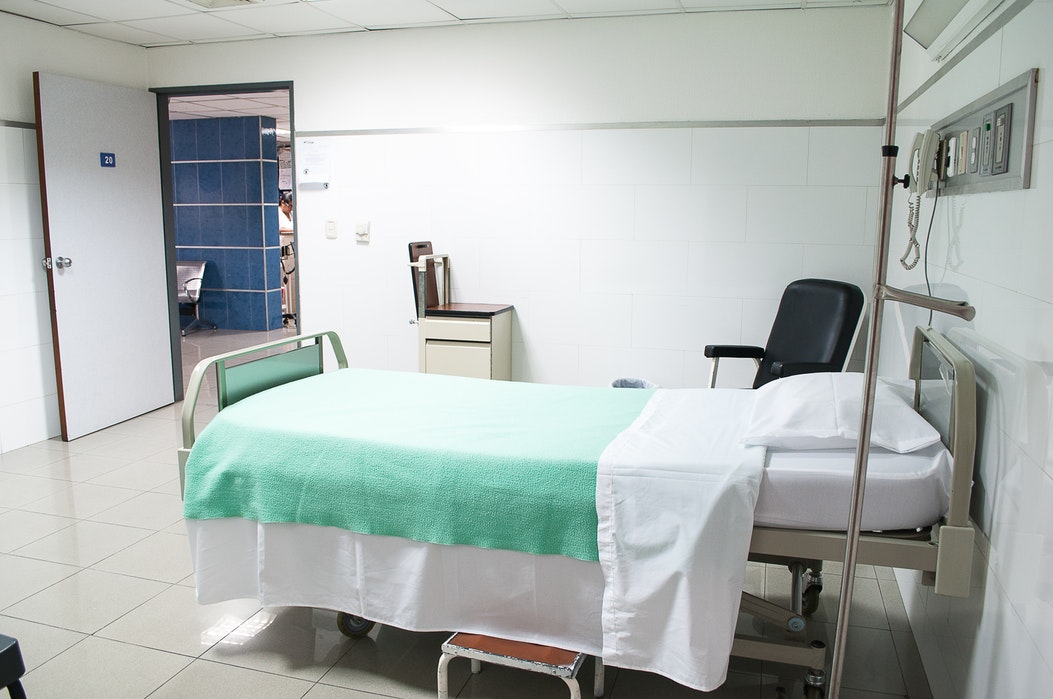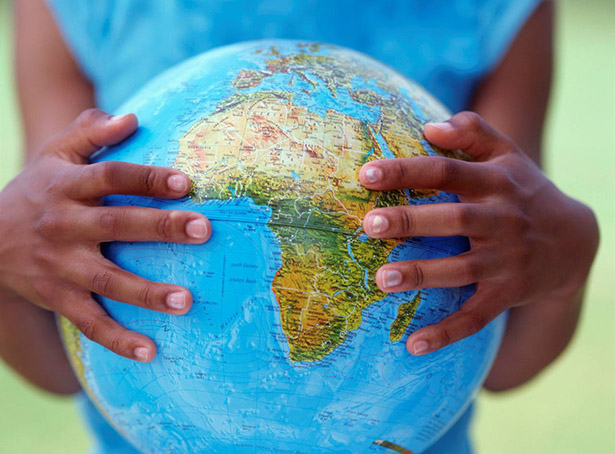- Home
- News
An End to Trafficking: 5 Ways We Can Work Together to Stop Human Trafficking

You may have used biometric time clock systems in the workplace, but did you know this same technology is being applied to help fight human trafficking? Undocumented trafficking victims can be tracked by using photos obtained from their families and comparing these to biometric data gained when traffickers attempt to move them across borders. This is just one of many projects aimed at using advanced technology to find victims and break apart trafficking rings.
While you may not be able to take part in such projects, there are plenty of things you can do in your daily life to help combat this insidious underground industry. The following five tips are a great place to start:
1. Understand the risk factors
Knowing the risk factors for becoming a victim of human trafficking is the best way to protect yourself and those you love. Political instability, racism and other forms of prejudice, poverty, addiction, mental health problems, and gang involvement are the biggest risk factors. Victims can also be targeted online, so it’s important that you and your loved ones know about romance and sextortion scams and adopt cyber hygiene practices.
2. Learn about the indicators of human trafficking
Whether at work, on a night out, or while traveling, there’s a possibility that you may encounter a victim of trafficking in your day-to-day life. If you know the signs to look out for, you can alert the authorities and potentially save someone from a horrible fate.
If someone lives with their employer and/or lives in poor conditions with a lot of other people, this can be an indicator that something is wrong. If you see signs of physical abuse, the person appears fearful, and they’re not able to talk freely without their employer present, these are major red flags. Another more subtle sign to look out for is someone whose answers seem scripted or rehearsed.
3. Know who to contact if you suspect someone is in trouble
If you suspect you’ve encountered a human trafficking victim but don’t know who to contact, you may feel lost and helpless. So it’s important to pre-arm yourself with the numbers to call. In the US, your go-to should be 911 and the National Human Trafficking Hotline.
When traveling, make a point of noting down relevant phone numbers for authorities in the countries you visit. This is a good habit to get into anyway, as you never know when you may need emergency assistance. If in doubt, you should be able to obtain guidance from your embassy.
4. Become a mentor
If you’re passionate about preventing human trafficking, consider mentoring at-risk youth in your area. As a mentor, you can provide the support necessary to ensure vulnerable young people don’t slip into the clutches of traffickers. Doing so can be far easier than you think. Start by looking up mentoring programs in your area, find one that you know you can commit to, and get involved.
5. Be a conscious consumer
Trafficked victims are often forced to work for little or no remuneration, and the goods and services they produce may be up for consumption in your part of the world. From clothing and electronics to food and beauty services, these exploitative products and services are rife. So, take the time to research companies and industries before you purchase from them.
Keep these tips in mind as you navigate the world, and you may be able to play a small but pivotal role in putting an end to human trafficking.
Dental Breakdown – 4 Of The Most Bizarre Dental Emergencies To Ever Go Down
Dentists, hygienists and even dental receptionists have truly seen it all. While no dental emergency is ever a comfortable situation, there are plenty of cases that will leave anyone gasping! Here are four tales that have left a dentist’s chair to become some of the strangest dental stories to have occurred:
1. DIY Dentist With Superglue
A famous story of creative but highly questionable home dental work is a case in England of a woman who felt afraid seeing the dentist about her declining dental health. Rather than facing her fears she decided to keep her smile intact by using superglue on her teeth to stop them from falling out. Eventually, she did seek professional help, and had to have most of her teeth removed and replaced with titanium screws. If only she’d looked at other options such as porcelain veneers or other non-invasive techniques, she could have transformed her smile without the trauma and highly invasive surgery!
2. Plier Tooth Extraction
While you may have heard jokes or old-time tales about the use of pliers for dental extractions, there is a series of terrifying assault cases that occurred in New Zealand, wherein the accused used pliers and tools like screwdrivers to remove their victim’s teeth.
While these actions were violent attacks, there are people who will look into DIY solutions for extractions rather than paying a professional. This almost always causes more damage than relief as you risk permanent damage, leaving part of your tooth in your gums and infections from using non-medical grade tools. In the most serious cases an infection of the gums can lead to septicemia, which can be potentially fatal if not treated immediately. If you experience soreness in your teeth, always talk to a dentist about your options.
3. Tooth or Garden?
A much more light-hearted tale and serious reminder on the importance of regular flossing is a story about an interesting discovery during a patient’s root canal procedure. While cleaning their patient’s root and gum, the dentist came across some food, identified as seeds lodged deep in the gums. Where it gets weirder is, the dentist could see that there were some visible, tiny sprouts emerging from the seed. This story produced the quote, “I realised it was a tomato seed sprouting a plant” from the operating dentist!
While getting small bits of food stuck between your teeth and gums is common while eating, especially with smaller food items like seeds, it’s important that you maintain your oral hygiene by brushing and flossing your teeth every day.
4. One Mouth, 232 Teeth
A very interesting case is that of a boy in India who was found to have 232 teeth in total. Unlike the above stories which were the result of people’s actions, this extreme characteristic came down to a very rare medical condition called composite odontoma. This resulted in the boy experiencing a set of benign tumors that grew teeth inside of them. After a seven-hour procedure, the excessive teeth were removed and the patient has since fully recovered. The dentists who operated had never seen anything like this before. Fortunately, this bizarre case and its happy ending have been shared all around the world.
As shocking as the stories may seem, they also inspire gratitude for our dentists and the work that they do. If you are experiencing any discomfort, are unhappy with your dental appearance or notice anything unusual in your mouth, always seek help from a reliable dental professional.
Do you have any questions about this article? Click here to contact us today.
What You Must Know Before Getting A Blood Test Done
Getting a blood test done is a very common part of our life. At times when we are ill or suffering from any disease, the healthcare professional suggests a blood test which helps in the identification of the exact problem, infection, virus or bacteria so that the treatment can be offered accordingly. However, there are some common points that you should certainly know before you are going for a blood test. These points are neglected by many but it is important to be aware of these so that you do not have to face any kinds of troubles or complications during the course of blood test and after it as well.
Checking the reputation of the laboratory is necessary
Before going for the blood test, it is quite important that you check the reputation of the laboratory where you are going for the test. You need to check for the proper licenses and certifications from the regulatory authority which proves that the laboratory is a genuine one. There must be certified phlebotomists for blood collection. For those who are unaware of what phlebotomy is, it would not be out of place to mention here that phlebotomy is a popular career option nowadays, and even you can find your school and undergo proper training to become a phlebotomist.
Hygiene is important
During the process of collection of blood for testing, hygiene is one of the most important factors that need to be taken very good care of for the avoidance of any kinds of infections. You should make sure that the phlebotomist washes hands and uses a fresh set of hand gloves before the collection of blood sample. This ensures that no infection is transferred to you.
New syringe must be used
It is mandatory that the technician uses a new disposable syringe for the prevention of any kinds of transmission of bacteria and virus. It is to be kept in mind that some of the dreadful diseases like HIV, Hepatitis etc., spread through this mode of used needles. This is one of the most common ways of the spread of these diseases and therefore you should be extremely careful while going for a blood test.
Proper labeling
Another important factor that needs to be taken well care of is proper labeling during the course of blood testing. When the phlebotomist collects the blood sample, it is important that the blood so collected is put into properly labeled containers or tubes so that there are no chances of erroneous results of evaluation of the sample.
Cleaning of the skin before taking sample
It is extremely important to make sure that the area of the skin to be pricked for sample blood collection is cleaned properly with antiseptic and dried before the collection of the blood. This eliminates the chances of any germs entering through the part of the pricked skin.
Finally, it needs to be taken care that the used syringe is properly disposed for the prevention of reuse and after the collection of sample is over a cotton gauge is placed on the site of punctured skin so that the area is sealed.
Esther Nenadi Usman on Addressing the Disillusionment with Politics Young People Have in Nigeria
Around 50% of the population in Africa is made up of people aged 30 or younger. They are everywhere: in the streets, in the fields, in the classrooms, on the pitches. But where they aren’t found, unfortunately, is in politics. This is something that Esther Nenadi Usman aims to change. With her background in education in the southern state of Kaduna, she knows like no-one else how important the voice of today’s youth is.
Esther Nenadi Usman on the Role of Youth in Politics
In the past, young people have been used in politics. They have been a tool for politicians who wanted to say all the right thing but didn’t actually deliver. Youths were also cheap labor and great for handing out election materials. But as soon as the elections were over, young people would be forgotten again.
All across Africa, youths are also abused. They are recruited by rebels, revolutionaries, and vigilantes. The plight of the child soldier is well-documented, but little is done about it. The fact that young children are snatched from their villages and made addicted to heroin to carry out despicable acts, is well-known.
Esther Nenadi Usman has always pushed the plight of young people and she is excited about the ripples that seem to be forming. It was mainly young people that drove the Arab Spring. They came up with strategies to inform others of their plans. They motivated each other. They become communicators, using modern technology to spread their message.
Young people standing up for what is right in Africa is nothing new. Remember Doe, Rawlings, and Sankara, who were all recruited by the military but ended up changing their countries, Liberia, Ghana, and Burkina Faso, for the better. They brought unity, because they acted and because they actually represented at least 50% of the population of their country – the young.
Today, young people in Africa want more. They want to gain an education from skilled teachers, they want to access technology, and they want to start businesses. But they are hampered by the fact that, still, youth unemployment is often twice or three times as high as overall unemployment. This is despite the fact that they are better educated and know more of the modern world. And this is precisely what Esther Nenadi wants to change. She wants young people to take on the place they have worked very hard for, and the place that they deserve.
Thankfully, there has been a rise of forums relating to young people in different African countries. The last elections in Nigeria in 2015 saw a huge uprising of young voters speaking out for their beliefs. A change is going to come for the African young people, who are already inspiring the next generation and telling them that they too have a voice that can be heard. Esther Nenadi looks at them with great pride and embraces this development, seeing that in them lies the greatest future Nigeria will ever have.
3 Businesses That Would Benefit From Weather Software and How Earth Networks Can Help
Deteriorating meteorological conditions can put people at risk, which is why businesses that operate outside need to pay special attention to forecasts. If you’re wondering about the potential business benefits from weather software, turn to the team of meteorologists at Earth Networks. Here are three industries that could use this service.
Hospitality Companies
Hotels, bars, and restaurants are in the business of serving people, which means they need to cater to the needs of their customers. If an eatery has an outdoor patio, managers can use advanced knowledge of incoming storms to avoid seating people outside. A hotel could use similar information to deploy resources such as lender umbrellas and extra doormats before the first drops hit the ground.
Sports Franchises
Stadiums bring thousands of fans together to cheer on a team, but they also pose a risk during severe weather. While playing fields provide no cover for athletes, grandstands put spectators in an open and elevated position, which are both undesirable circumstances during storms. Franchise officials can use Earth Networks lightning software to spot discharges in the area and evacuate people to safety until the threat passes.
Contractors
As a new skyscraper or other building sprouts out of empty landscape, construction workers can quickly find themselves in a dangerous situation if weather conditions deteriorate. If a contractor uses software to track precipitation and lightning real time, he or she can take personnel out of harm’s way and keep the work going by reassigning employees to safer indoor projects.
Let Earth Networks Help
If you’re involved with a business in any industry that regularly puts people outside, contact Earth Networks to learn how tracking software can help. With proprietary sensors that track in-cloud lightning, you’ll be able to get warnings with enough time to evacuate everybody to safety. Forecasts can give you a good idea about what to expect, but trackers allow you to get the most out of every day by keeping operations going until real threats exist.
Top 4 News Stories from 2017
Australia to ban climbing on Uluru as from 2019
As from October 2019, no one will be allowed to climb Uluru, Australia’s famous landmark. Due to indigenous sensitivity issues, the climb was ended by a unanimous vote by the board of the Uluru-Tjuta National Park. Referred to for many years as Ayer’s Rock, the massive red monolith is a sacred site to the Aboriginal people. Locals have been asking for a long time, that visitors not climb the world-famous landmark and there are signs placed at the start of the climb, requesting people to not continue out of respect for the traditional laws of the custodians of the land, the Anangu Aboriginal people.
Uluru, a listed UNESCO World Heritage site, was given back to its traditional owner’s way back in 1985. The climbing ban will begin on October 26, 2019 – 34 years after the official handover.
Nuclear power plants to be built by Russia in Nigeria
Nigeria, Africa’s largest economy, in an attempt to put an end to its energy crisis, has signed a deal giving Russia the go-ahead to build two power plants in the country. Sources at the Nigeria Atomic Energy Commission said in an interview with the BBC, that Rosatom, a Russian state-owned company, will erect one power plant in the south of the country and another in the center.
Nigeria is hoping that the plants, which at first will be run by Rosatom prior to being handed over, will help to ease the energy deficit in the country. More than 40 percent of Nigeria was without electricity in 2014, according to World Bank figures. Despite being one of the largest oil producers in Africa, much of the country’s oil wealth has been squandered over the years. Rife with corruption at all levels has made the country broke and able to produce only a fraction of the energy needed by its 180 million citizens.
“Despicable” fraud in England costs the NHS £1 billion per year
According to Sue Frith,chief executive of the NHS Counter Fraud Agency, more is going to be done to protect England’s NHS from “despicable” acts of fraud. She promised a clampdown after releasing figures that suggested the annual bill for fraud in the NHS to be in the region of £1 billion.
The analysis carried out by her team recorded that an estimated amount of £1.25bn each year, is being committed by staff, contractors and patients, a figure that represents around 1 percent of the total NHS budget.
The two biggest areas of fraud were related to procurement of goods and services and patients, both of which will more than likely cost the NHS more than £200m each year.
Germany to pay clients for electricity usage due to renewable energy creating an enormous power surplus
Power producers in Germany are on the verge of paying clients to use electricity over the weekend. Wind generation climbed to a record high on Sunday which created more output than required, driving prices for electricity to below zero, according to data compiled by Bloomberg. It would be the first time in the past year that the average price for an entire day shows negative instead of just specific hours.
With these negative prices, electricity producers will either have to shut down power stations to reduce electricity supply, or pay their customers to use electricity.
Germany had the renewable energy industry reeling in shock earlier this year, by giving contracts to developers who were prepared to erect offshore farms without a subsidy.









